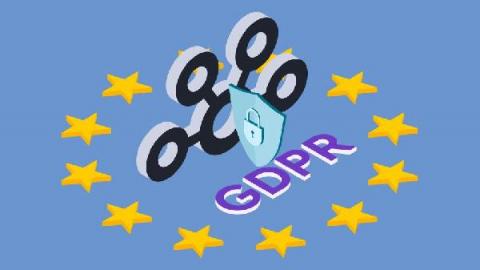Systems | Development | Analytics | API | Testing
Legislation
The Official 2021 Checklist for HIPAA Compliance
12 Facts about GDPR Compliance Regulations
The Complete Guide to GDPR Compliance
What FERPA Means for Your Data
FRTB: Will 2023 Finally be the Year?
The Fundamental Review of the Trading Book (FRTB), introduced by the Basel Committee on Banking Supervision (BCBS), will transform how banks measure risk. FRTB is designed to address some fundamental weaknesses that did not get addressed in the post-2008 financial crisis regulatory reforms. In order to help make banks more resilient to drastic market changes, it will impose capital requirements that are more closely aligned with the market’s actual risk factors.
Architecting Apache Kafka for GDPR compliance
Once upon a time (2017), in an office far far away, you may have been cornered in a conversation with someone from Legal about GDPR. It could have gone something like this: “You there, Data Engineer” “Yep, that’s me” “What PII do we have residing in this Apache Kafka database?” You probably mumbled something about Kafka not being a database. “And who can read/ write the data?
Protecting Personal Data: GDPR, CCPA, and the Role of ETL
The growth of data has been exponential. By 2023, it's anticipated that approximately 463 exabytes (EB) will be created every day. To put this into perspective, one exabyte is a unit equivalent to 1 billion gigabytes. By 2021, 320 billion emails will be sent daily, many of which contain personal information. Data collected around the globe contains the type of information that businesses leverage to make more informed decisions.
Common Regulations that Data-Driven Entities Need to Know
For public and private entities, data collection is a way of life. That fact has led to the proliferation of common regulations to protect consumers and individuals from unacceptable use or storage of their private data. But it's not just data collection laws companies have to adhere to. There are many US-based and international statutes that put constraints on how they do business. What follows summarizes the most common regulations and how they can affect the work you do, day to day.
How to Comply with Sweden's PII Data Protection Act
Personal Identifiable Information (PII) has become a headache for most digital-first businesses in recent years. Everyone agrees we need rules to keep personal data safe, but there’s no universal PII Data Protection Act we can all follow. Instead, there is a worldwide patchwork of regulations, many of which have global implications. Sweden is one of the pioneers in data security laws.




